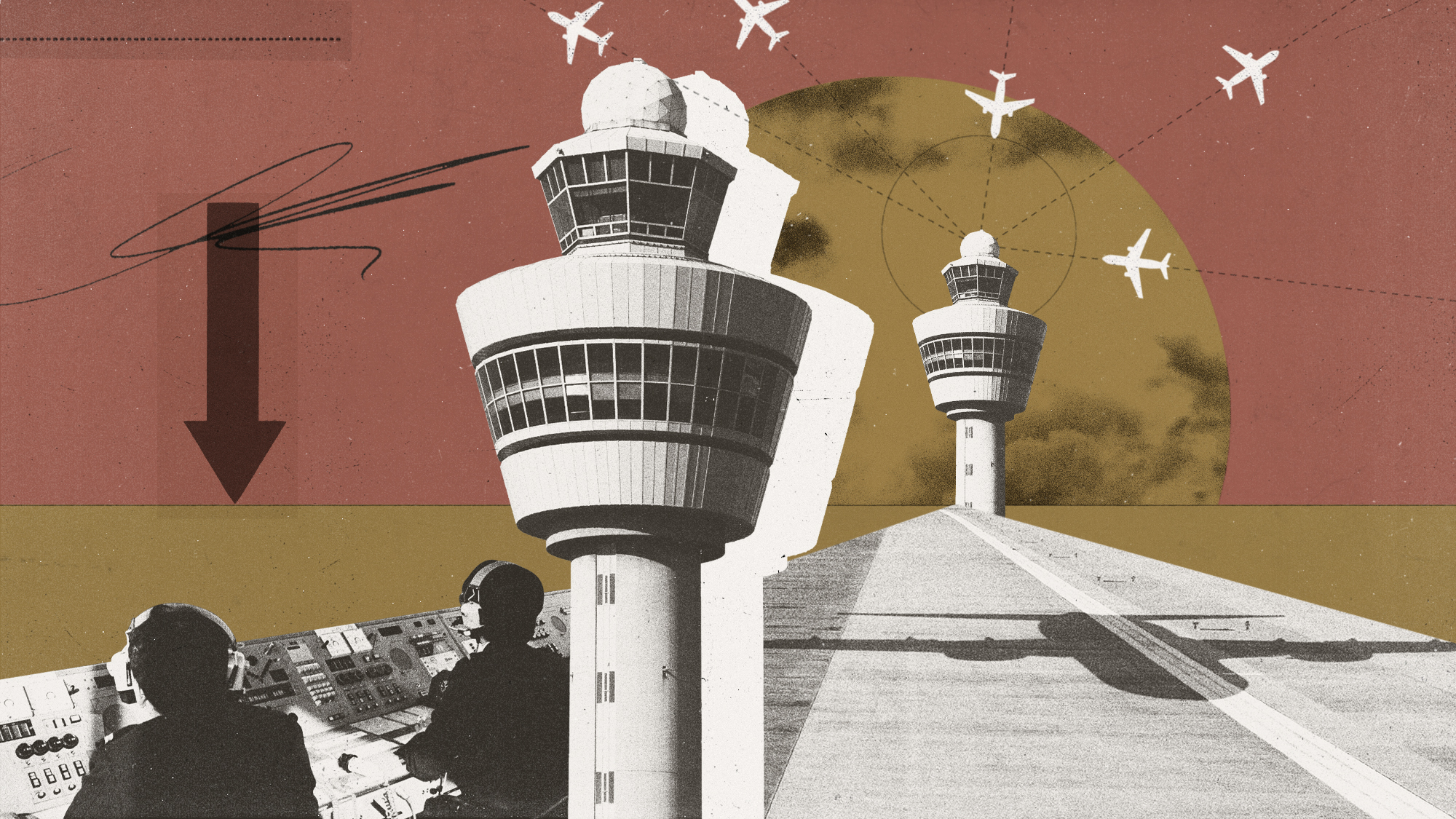Jeff Flake and the lost art of changing your mind
Why the senator's persuadability is a hopeful sign for democracy


Pay no attention to the magazine covers. There is hope for American democracy, after all, and it's been found — in all places — at the heart of the fierce and ugly debate over Brett Kavanaugh's nomination to the Supreme Court.
That hope's name? Jeff Flake.
You might be surprised by that notion. The senator, an Arizona Republican in his waning days of office, has become an object of derision across the political spectrum. The right hates him because of his evident contempt for the way President Trump practices politics. The left despises him because that contempt has manifested itself in a few speeches and a book — but little to no action to actually obstruct Trump. In an increasingly polarized, tribalized nation, Flake has become a man without a political country.
Subscribe to The Week
Escape your echo chamber. Get the facts behind the news, plus analysis from multiple perspectives.

Sign up for The Week's Free Newsletters
From our morning news briefing to a weekly Good News Newsletter, get the best of The Week delivered directly to your inbox.
From our morning news briefing to a weekly Good News Newsletter, get the best of The Week delivered directly to your inbox.
The criticism of Flake isn't entirely unfair. But one very important thing is also true: If not for Flake, it's very likely Kavanaugh this morning would be waking up ready to be sworn in as the court's newest justice. Instead, America has another week to consider Kavanaugh's nomination while the FBI works to determine the truth of sexual assault allegations against him.
Yes, this is a thin reed.
Flake was the only Republican standing between that delay and a likely swift confirmation. In an era where party-line votes are common and expected, Flake allowed himself to be persuaded to take an unexpected stand.
And persuasion is the currency of democracy.
Moments before Friday's meeting of the Senate Judiciary Committee — after Flake announced he would vote for Kavanaugh — a pair of young women approached him in the hallways of the Capitol. The result went viral. As he stood in an elevator, they confronted him with their own stories of sexual abuse. "You're telling all women that they don't matter, that they should just stay quiet," Maria Gallagher told him. "Because if they tell you what happened to them you are going to ignore them."
"It certainly struck a chord," Flake said later.
That was proof for some Democrats that their uncivil campaign of recent months is on the right track. "Tell me again why we shouldn't confront Republicans where they eat, where they sleep, and where they work until they stop being complicit in the destruction of our democracy," ThinkProgress' Ian Millhiser wrote on Twitter.
Gallagher and her friend didn't go to where Flake eats or sleeps to confront him, though. (Consider: Would you be more persuaded or irritated by strangers accosting you in those places?) Instead, they found him where he works — doing the people's business — and did what is done in those hallways: They lobbied him.
It wasn't just lobbying that sealed the deal. Relationships also mattered. It was a Democrat, Sen. Chris Coons (Del.), who persuaded Flake to ask for the one-week delay. Coons was persuasive because the two men have a longstanding relationship.
"I know Chris," Flake told The Atlantic. "We've traveled together a lot. We've sat down with Robert Mugabe. We've been chased by elephants, literally, in Mozambique. We trust each other."
It also helped that what Coons asked for — the one-week delay — was so plainly reasonable, even from a Republican point of view. It was a political Pascal's Wager of sorts for Flake: If no new evidence against Kavanaugh emerges during the week's delay, then almost zero harm has been done. If new evidence comes forth, though, it allows the GOP to start the process over with a new, unsullied candidate — somebody who can presumably be rushed through before Congress' term ends in a few months.
Even then, the decision wasn't easy. "There's no currency, no market for reaching across the aisle," Flake said. "It just makes it so difficult."
Lobbying. Relationships. A gettable ask. Those three elements combined to persuade Flake to stand for the delay — and America is slightly less enraged today as a result.
All this comes with caveats, of course. There's reason to believe the Trump administration is limiting the scope of the FBI investigation of Kavanaugh to only four witnesses. And if no new evidence is found to corroborate the allegations, Flake will still probably vote for the nomination. A week from now, we're still going to be arguing about this.
Still, that's reason for hope. In a democracy, few battles are ever permanently won or lost. Sometimes, in a closely divided electorate, incremental victories are the best you can hope for. When so many of us believe "the other side" is always acting in bad faith and that it's pointless to attempt to persuade people who don't share our views, such moments can be rare.
There are still plenty of reasons to despair about American democracy. But those of us who want to save it still have to practice it where we can. That means doing the hard work of persuasion when and where possible.
On Friday morning in the Senate Judiciary Committee, it was still possible. There's hope yet.
Sign up for Today's Best Articles in your inbox
A free daily email with the biggest news stories of the day – and the best features from TheWeek.com
Joel Mathis is a writer with 30 years of newspaper and online journalism experience. His work also regularly appears in National Geographic and The Kansas City Star. His awards include best online commentary at the Online News Association and (twice) at the City and Regional Magazine Association.
-
 China looms large over India and Pakistan’s latest violence
China looms large over India and Pakistan’s latest violenceIN THE SPOTLIGHT Beijing may not have had troops on the ground. But as South Asia's two nuclear powers bared their teeth over Kashmir, China eyed opportunity in its own backyard
-
 What's wrong with America's air traffic control systems?
What's wrong with America's air traffic control systems?Today's Big Question The radios and radar keep going out at Newark International
-
 8 splashy items to elevate any pool party
8 splashy items to elevate any pool partyThe Week Recommends Fire up the snow cone machine, and turn on that outdoor movie projector
-
 The JFK files: the truth at last?
The JFK files: the truth at last?In The Spotlight More than 64,000 previously classified documents relating the 1963 assassination of John F. Kennedy have been released by the Trump administration
-
 'Seriously, not literally': how should the world take Donald Trump?
'Seriously, not literally': how should the world take Donald Trump?Today's big question White House rhetoric and reality look likely to become increasingly blurred
-
 Will Trump's 'madman' strategy pay off?
Will Trump's 'madman' strategy pay off?Today's Big Question Incoming US president likes to seem unpredictable but, this time round, world leaders could be wise to his playbook
-
 Democrats vs. Republicans: who are the billionaires backing?
Democrats vs. Republicans: who are the billionaires backing?The Explainer Younger tech titans join 'boys' club throwing money and support' behind President Trump, while older plutocrats quietly rebuke new administration
-
 US election: where things stand with one week to go
US election: where things stand with one week to goThe Explainer Harris' lead in the polls has been narrowing in Trump's favour, but her campaign remains 'cautiously optimistic'
-
 Is Trump okay?
Is Trump okay?Today's Big Question Former president's mental fitness and alleged cognitive decline firmly back in the spotlight after 'bizarre' town hall event
-
 The life and times of Kamala Harris
The life and times of Kamala HarrisThe Explainer The vice-president is narrowly leading the race to become the next US president. How did she get to where she is now?
-
 Will 'weirdly civil' VP debate move dial in US election?
Will 'weirdly civil' VP debate move dial in US election?Today's Big Question 'Diametrically opposed' candidates showed 'a lot of commonality' on some issues, but offered competing visions for America's future and democracy